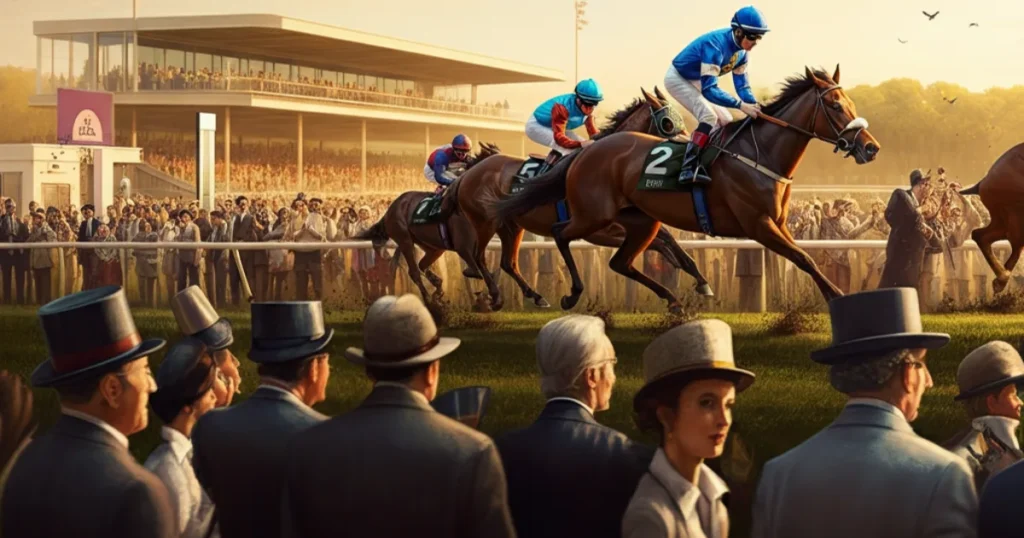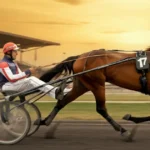Horse racing, or “La Filière Turf,” is more than just a sport in France. It’s a rich cultural tradition, a tightly connected community of passionate individuals, and a significant economic contributor. Bridging centuries of heritage with modern innovation, the French horse racing industry stands as one of the country’s cherished institutions. For fans, participants, and bettors alike, it offers an exciting mix of strategy, skill, and unpredictability.
Whether you’re a lifelong enthusiast, someone new to equestrian sports, or a betting aficionado curious about the industry’s dynamics, this guide will take you through the intricate world of La Filière Turf. You’ll learn about its key players, economic impact, regulations, cultural importance, and what the future holds for the sport.
A Brief Overview of La Filière Turf
Horse racing in France is rooted in centuries of tradition and prestige. The term “Turf” not only refers to the grassy racecourses but also signifies the broader horse racing community. With globally renowned events like the Prix de l’Arc de Triomphe, France has positioned itself as one of the leading nations in horse racing.
French racing encompasses flat racing (courses de plat), steeplechases (courses d’obstacles), and trotting races (courses de trot). These events draw massive crowds and are often intertwined with the betting world, making horse racing a thrilling experience for both spectators and gamblers.
Unlike some other betting sports, horse racing relies on Pari Mutuel betting, a system where all bets for a given race are pooled, and payouts are distributed after taxes and the house cut. This unique approach keeps the excitement fair and ensures the sport’s continued development.
Key Players in the French Horse Racing Scene
At the heart of La Filière Turf lies a collaborative network of talented individuals, each playing a vital role in the ecosystem:
Trainers
Horse trainers are the backbone of the industry. Renowned professionals such as André Fabre and Jean-Claude Rouget have made significant contributions to French racing success. By providing specialized training, dietary plans, and exercise schedules tailored to each horse, they ensure thoroughbreds reach peak performance levels for race day.
Jockeys
Jockeys bring the strategy and skills required to maneuver their horses across the finish line. Exceptional talents like Christophe Soumillon and Maxime Guyon have represented France on prestigious tracks worldwide, showcasing unmatched expertise behind every victory.
Owners
Owning a racehorse is no small feat. Owners are often passionate individuals or syndicates like Aga Khan IV’s stable, who fund the industry’s top competitors. Their investments go into acquiring, raising, and maintaining horses capable of competing in elite events.
Breeders
French breeders are globally respected for producing world-class racehorses. Regions like Normandy, home to hundreds of stud farms, are the breeding ground for champions. Programs encouraging ethical breeding practices have preserved the reputation of French bloodlines.
Together, trainers, jockeys, owners, and breeders form a close-knit network that drives the energy of every competition.
Economic Impact of La Filière Turf
La Filière Turf generates enormous economic activity. Betting alone contributes around €10 billion annually, primarily through Pari Mutuel Urbain (PMU), the official horse race betting operator in France. A portion of this revenue directly finances racecourses, prizes, and horse welfare programs.
Additionally, horse racing creates thousands of jobs across various sectors. From stable workers to event organizers, over 70,000 individuals are connected to the sport. Rural areas, in particular, benefit significantly due to their reliance on breeding and training facilities.
France has also embraced equestrian tourism, with racecourses like Longchamp and Deauville doubling as cultural attractions that draw visitors keen to experience the spectacle and ambiance of horse racing.
Regulations and Governance
The integrity of horse racing in France is maintained by strict regulation and robust governance efforts:
Key Governing Bodies
- France Galop oversees flat and steeplechase racing. It manages racecourses, sets schedules, and ensures fair practices.
- Le Trot governs trotting races, ensuring the distinctive rules of this discipline are properly adhered to.
These entities uphold the sport’s ethical and competitive standards while safeguarding horse welfare and ensuring races remain fair for bettors.
Ethical Considerations
Animal welfare has become a major focus in recent years. Regulations enforce high standards for the care and training of racehorses, with frequent veterinary checks and stringent anti-doping policies. Additionally, racecourses have improved safety measures to minimize injuries to both horses and jockeys.
The Cultural Significance of Horse Racing in France
For many, La Filière Turf isn’t just a sport—it’s an integral part of French culture. From hosting historic events like the Prix de Diane to being a staple of casual conversations at regional fairs, horse racing bridges different social classes and communities. Betting kiosks can be found in cafes across the country, and events often feature a celebratory atmosphere complete with food, music, and fashion.
Furthermore, French literature and film frequently highlight horse racing’s grandeur. The sport’s depiction in works such as Émile Zola’s Nana or the iconic race scenes in French cinema underscores its deep roots in society.
Future Trends and Challenges in Horse Racing
Like all legacy industries, horse racing in France faces its share of challenges and opportunities in an evolving world:
Technological Innovations
- Data Analytics gives bettors sophisticated tools to analyze race results.
- Live Streaming now allows fans to watch races globally, extending the sport’s reach beyond physical racecourses.
Environmental Concerns
Sustainability practices, such as reducing water usage on racecourses and promoting eco-friendly transportation for attendees, are becoming increasingly critical.
Reconnection with Younger Audiences
To attract younger enthusiasts, the industry is adapting through digital platforms offering online betting and interactive experiences, bringing La Filière Turf into the tech-savvy era.
Animal Welfare Advocacy
Pressure from animal rights organizations is pushing the industry to prioritize ethical practices and transparency in treatment standards.
Through these adaptive efforts, French horse racing is well-positioned to maintain its relevance while addressing modern challenges.
Resources to Learn and Engage
Want to go deeper? Here are a few ways to enhance your knowledge and involvement in La Filière Turf:
- Visit a Racecourse: Iconic venues like ParisLongchamp offer an unforgettable experience.
- Follow Betting Platforms: Explore insights from PMU for detailed race and betting analysis.
- Join Equestrian Communities: Engage with other enthusiasts on platforms like France Galop’s forums or various social media groups.
Whether you’re learning about horse racing for the first time or looking to expand your expertise, numerous resources are available.
Become Part of the Thrill
La Filière Turf is so much more than its beautiful horses and nail-biting finishes. It’s a world of tradition, ambition, and community, intricately tied to French identity. Whether you’re drawn by the sport’s strategic betting aspect, its cultural significance, or the passion of its players, horse racing in France has a little something for everyone.
Are you ready to explore the exhilarating world of French horse racing? Follow the latest updates, check upcoming races, and experience the Turf like never before!







